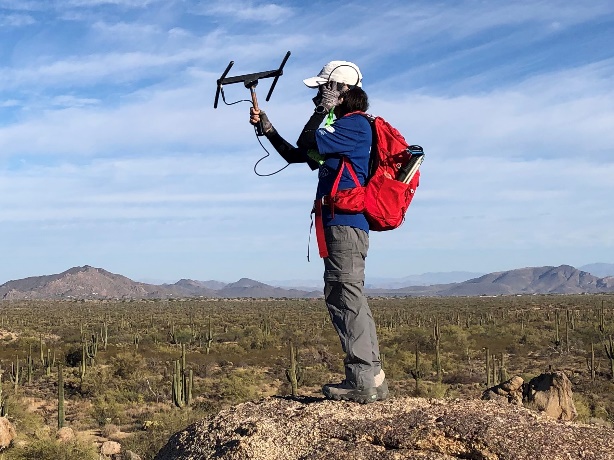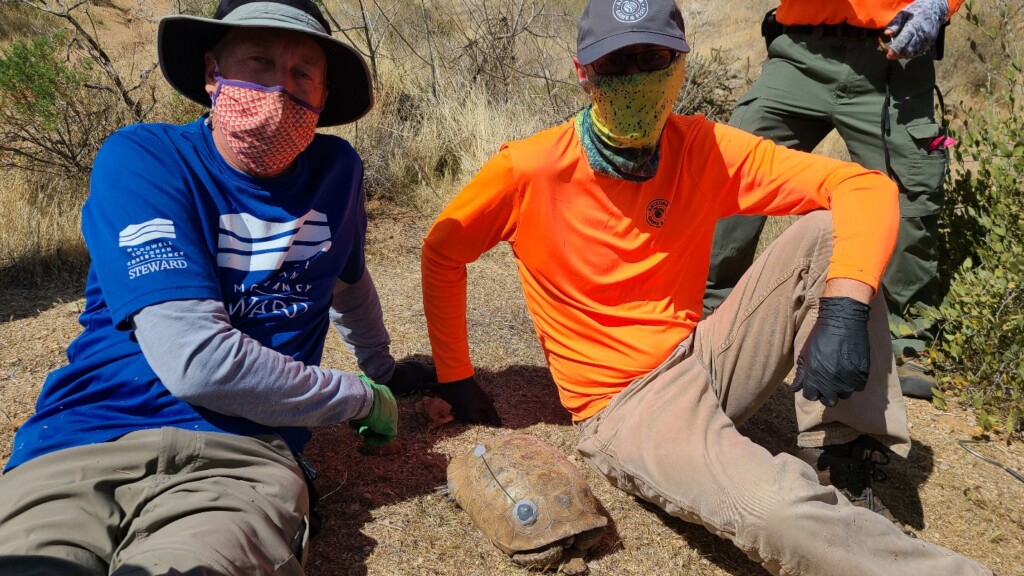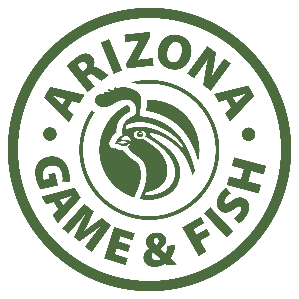TORTOISES AND HABITAT CONNECTIVITY
Why It matters
Spotting a Sonoran desert tortoise in the wild typically sparks excitement. These seldom-seen animals are important in the ecosystem, providing food for other species as well as shelter through the burrows they dig.
As a long-lived species with slow recruitment (few young survive to adulthood), the desert tortoise is vulnerable to human and environmental pressures. Chief threats facing this species include habitat loss and fragmentation, removal from the wild, disease, introduced species and more. Some populations have experienced declines, primarily those around human developments. In Arizona, it is protected through its designation as a Species of Greatest Conservation Need.
Little is known about the tortoise population in McDowell Sonoran Preserve or what factors might be affecting it. Understanding how human activities might influence this sensitive species will help the Conservancy and the City of Scottsdale make appropriate management decisions to protect the tortoise and the Preserve ecosystem.
The Conservancy’s Work
Through generous support from the Heritage Fund, the Conservancy is studying the local tortoise population using a combination of surveys and radio telemetry. Trained teams survey for tortoises in the Preserve, with the goal of attaching radio transmitters to at least 20 animals. All animals are weighed, measured, marked, and given a health assessment, which helps monitor for evidence of disease or other potential issues.
 Transmittered animals were located weekly in 2021. In spring 2022, these animals will receive GPS trackers, which will provide a location every hour for each individual. These trackers do not affect tortoise behaviors or movements. Tracking desert tortoise movements provides a better understanding of how tortoises are using the Preserve and what factors might affect their population. Information about this population also helps understand trends throughout this species’ range and how to best protect it into the future.
Transmittered animals were located weekly in 2021. In spring 2022, these animals will receive GPS trackers, which will provide a location every hour for each individual. These trackers do not affect tortoise behaviors or movements. Tracking desert tortoise movements provides a better understanding of how tortoises are using the Preserve and what factors might affect their population. Information about this population also helps understand trends throughout this species’ range and how to best protect it into the future.
Additionally, this project feeds into our knowledge of how the Preserve acts as a habitat linkage within the larger region. The Preserve provides a vital connection for nearly 3 million acres of protected landscapes, extending from Tonto National Forest through the Preserve and into McDowell Mountain Regional Park. Understanding how species such as tortoises, mule deer and more move about the landscape is essential for determining management needs to maintain that connectivity and ensure these species continue to thrive in this area.
What’s Been Found
Field work began in April 2021 and has been very successful. We have marked 24 tortoises, and several more have been observed or reported by other individuals. Transmitters have been attached to 17 adults and two immature tortoises.
The transmittered tortoises frequently moved throughout their active season (roughly April through October), with activity and distance of movements increasing during the monsoon season. Most have been found far from human activities, but some have been found near trails and trailheads. Two immature tortoises made long-distance movements of up to 5km and were found crossing roads in residential areas adjacent to the Preserve. An adult male made a long-distance movement, skirting around an active construction area before returning to his home area. Tortoises settled into their overwinter areas in October-November.
Continued tracking will allow us to determine areas typically used by each individual, overlap between those areas, short- and long-distance movement patterns, and much more. We will also be able to determine any barriers to movements within the Preserve. From this information, the influence of natural and human factors can be teased out to help inform management needs.

How You Can Help
- Tortoises are protected in the state of Arizona. If you see one, please do not touch, handle or move it, unless it is in imminent danger (e.g., on a busy road).
- Please report any sightings of tortoises while adventuring in nature! You can document them in iNaturalist.
- Learn more about the Sonoran desert tortoise.
- Support McDowell Sonoran Conservancy with a gift or volunteer as a Conservancy Steward
McDowell Sonoran Conservancy Staff Contact:
Jessie Dwyer | 480-998-7971 ext. 104 | jessie@mcdowellsonoran.org
15300 North 90th Street, Suite 400, Scottsdale, Arizona, 85260 | 480-998-7971


DISCOVER MORE
Protect Your Sonoran Preserve
The Power to Sustain the Sonoran Desert for Future Generations is Yours

